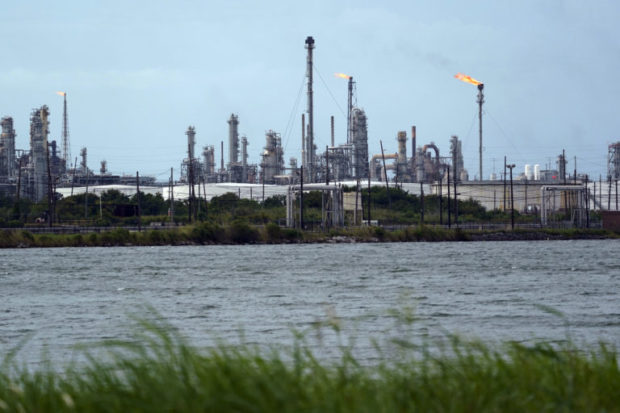As crews began returning to U.S. Gulf of Mexico offshore facilities on Thursday, this year’s repeated oil and gas production halts were already hitting energy firms’ results.
Eight named storms entered the U.S. Gulf of Mexico this year, most spiraling up to damaging storms that required offshore facility evacuations or temporary well shutdowns.
“It has been a difficult and challenging year because of the number of storms,” said Erik Milito, president of trade group National Ocean Industries Association. U.S. offshore Gulf of Mexico oil production likely will end the year down by about 200,000 barrels per day (bpd) from where it started, he said.
Hurricane Zeta this week cut 4 million barrels over four days, halting up to 85% of daily offshore Gulf of Mexico oil production and nearly 58% of its natural gas output. It and other storms led to pipeline and onshore processing facilities to close, hurting even wells that could stay open.
Weak energy prices dropped U.S. Gulf of Mexico output in July to 1.65 million bpd, before the series of storm-related shutdowns. It could recover some of the lost output in coming weeks, NOIA’s Milito said.
Well closings will hit results at Hess Corp, which forecast a decline of 25,000 bpd in the current quarter on top of an about 19,000 bpd loss in the prior quarter on offshore maintenance and hurricane shut-ins.
W&T Offshore earlier forecast fourth quarter oil and gas production would fall below analysts’ forecasts even though its platforms did not suffer major damage from repeated storms. The shut-ins also added about $5 million to its costs.
In addition to shutdowns at two platforms, Royal Dutch Shell on Thursday said other Gulf of Mexico output was hurt by disruptions away from its platforms. It also was restarting an onshore crude-oil processing unit knocked offline by power disruptions from the storm.
Photo: A refinery is seen along the water, Wednesday, Aug. 26, 2020, in Port Arthur, Texas. The energy industry is bracing for catastrophic storm surges and winds as Hurricane Laura cuts a dangerous path toward the coastlines of Texas and Louisiana.(AP Photo/Eric Gay)





















 20,000 AI Users at Travelers Prep for Innovation 2.0; Claims Call Centers Cut
20,000 AI Users at Travelers Prep for Innovation 2.0; Claims Call Centers Cut  Preparing for an AI Native Future
Preparing for an AI Native Future  Execs, Risk Experts on Edge: Geopolitical Risks Top ‘Turbulent’ Outlook
Execs, Risk Experts on Edge: Geopolitical Risks Top ‘Turbulent’ Outlook  Flood Risk Misconceptions Drive Underinsurance: Chubb
Flood Risk Misconceptions Drive Underinsurance: Chubb 













